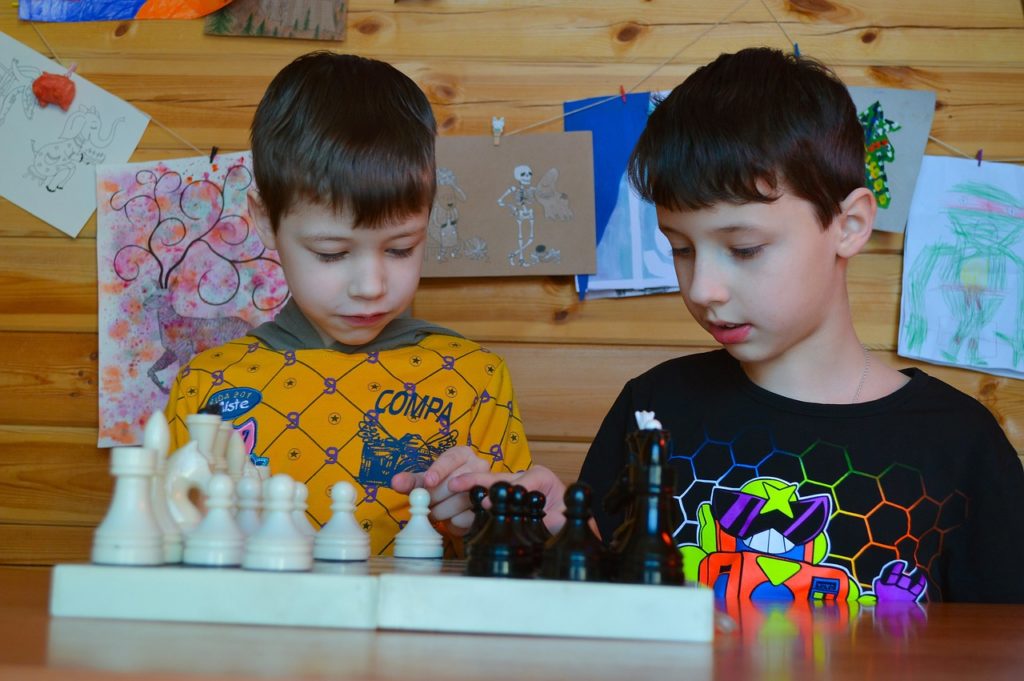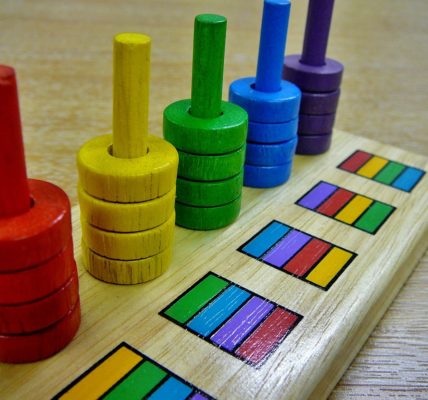
The Joy of Board Games for Kids
Board games have long been a source of joy and entertainment for children of all ages. They provide not only hours of fun but also numerous benefits that contribute to a child’s development. In this section, we will explore the benefits of playing board games and discuss why board games are an excellent choice for kids.
Benefits of Playing Board Games
Playing board games offers a wide range of benefits for children. Here are a few key advantages:
- Educational Value: Board games often incorporate educational elements, such as counting, reading, problem-solving, and critical thinking. They can enhance a child’s cognitive skills and promote learning in an engaging and interactive way.
- Social Interaction: Board games encourage social interaction and cooperation among players. Children learn important social skills, such as taking turns, following rules, and practicing good sportsmanship. They also provide an opportunity for family bonding and quality time together.
- Strategic Thinking: Many board games require strategic thinking and planning. Children learn to strategize, make decisions, and anticipate consequences. These skills can be valuable in various aspects of life, including academics and problem-solving.
- Communication Skills: Board games often involve verbal communication and discussions among players. Children learn to express their thoughts, articulate ideas, and listen to others. This promotes effective communication and helps develop language skills.
- Patience and Resilience: Board games teach children the importance of patience and resilience. They learn to cope with setbacks, handle disappointments, and persevere through challenges. These qualities are crucial for personal growth and success in life.
Why Choose Board Games for Kids
Board games are a popular choice for kids due to their many advantages. Here are a few reasons why parents often opt for board games:
- Screen-Free Entertainment: In a digital age dominated by screens, board games offer a refreshing alternative. They provide an opportunity for kids to engage in offline activities that stimulate their minds and promote face-to-face interaction.
- All-Age Appeal: Board games come in a wide range of options suitable for different age groups. Whether your child is a preschooler or a teenager, there are age-appropriate board games available to cater to their interests and abilities.
- Versatility: Board games come in various genres, themes, and gameplay styles. From classic games to those with educational or strategic elements, there is a board game to suit every child’s preferences. Whether your child enjoys puzzle-solving, strategy, or creativity, there’s a board game that will capture their interest.
- Family Bonding: Playing board games as a family can create lasting memories and strengthen family bonds. It provides an opportunity for parents and children to engage in shared activities, collaborate, and have fun together.
By introducing board games into your child’s routine, you can offer them a world of entertainment and learning. Whether you’re looking for classic games, strategy-based options, or cooperative play, there is a wide range of board games available to cater to your child’s interests and developmental needs. So gather around the table, roll the dice, and embark on an unforgettable journey of fun and learning with board games for kids.
Classic Board Games for Kids
When it comes to classic board games for kids, there are a few timeless options that have been entertaining children for generations. These games provide simple yet engaging gameplay that is suitable for young players. Here are three beloved classics that are sure to bring joy to your family game nights.
Snakes and Ladders
Snakes and Ladders is a game that has been enjoyed by children around the world for decades. The objective of the game is to reach the top of the board by climbing ladders and avoiding snakes. Players take turns rolling a dice and moving their game piece accordingly. The game teaches children basic counting skills and introduces them to the concept of chance and luck.
| Number of Players | Recommended Age |
|---|---|
| 2-4 | 4+ |
Candy Land
Candy Land is a colorful and delightful board game that captures the imagination of young players. In this game, players journey through a vibrant candy-themed world, encountering sweet surprises along the way. The game involves drawing cards and moving to the corresponding color on the board. Candy Land is perfect for introducing young children to the concept of turn-taking and following instructions.
| Number of Players | Recommended Age |
|---|---|
| 2-4 | 3+ |
Chutes and Ladders
Similar to Snakes and Ladders, Chutes and Ladders is a game of ups and downs. Players navigate through a board filled with ladders that help them advance and chutes that send them back. The game reinforces counting skills and teaches children about cause and effect. Chutes and Ladders is an excellent choice for young children who are just starting to play board games.
| Number of Players | Recommended Age |
|---|---|
| 2-4 | 3+ |
These classic board games for kids provide hours of entertainment and valuable learning opportunities. By engaging in these games, children develop important skills such as counting, taking turns, and following rules. They also promote social interaction and family bonding. Explore other categories of fun games for kids such as cooking games for kids, party games for kids, and card games for kids to broaden your family’s gaming experience. Get ready for unforgettable fun with these timeless classics!
Strategy Board Games for Kids
Introducing kids to strategy board games can be an excellent way to foster critical thinking, problem-solving, and strategic planning skills. These games encourage children to use their minds strategically while having fun. Here are three popular strategy board games for kids: Chess, Checkers, and Connect Four.
Chess
Chess is often considered the king of strategy board games. This timeless game challenges players to outmaneuver their opponents by strategically moving their pieces across the board. Chess teaches children to think several moves ahead, analyze different scenarios, and develop problem-solving skills.
With its rich history and countless online resources available, learning chess has never been easier. Children can start by learning the basic rules and gradually progress to more advanced strategies. Playing chess can also improve concentration and memory skills. Encourage your child to explore the fascinating world of chess and enjoy the benefits it offers.
Checkers
Checkers, also known as Draughts, is another classic strategy board game that is relatively easier to learn compared to chess. The goal of the game is to capture the opponent’s pieces by strategically moving your own. Checkers helps children develop logical thinking, spatial reasoning, and decision-making skills.
While the rules of checkers are straightforward, the game offers a surprising amount of depth and complexity. As children become more familiar with the game, they can start exploring strategies to gain an advantage over their opponents. Encourage your child to challenge friends or family members to friendly checkers matches and watch their strategic thinking skills grow.
Connect Four
Connect Four is a fun and engaging strategy board game that combines logical thinking and quick decision-making. The objective is to be the first player to connect four of their colored discs in a row, either horizontally, vertically, or diagonally. Connect Four helps children develop critical thinking skills, pattern recognition, and strategic planning.
While Connect Four may seem simple at first glance, players must anticipate and block their opponent’s moves while planning their own winning strategies. This game can be enjoyed by children of different ages, making it a great choice for family game nights or playdates.
By introducing kids to strategy board games like chess, checkers, and Connect Four, parents can provide them with a fun and educational way to develop important cognitive and analytical skills. Encourage your child to explore the world of strategy games and discover the joy of strategic thinking. For more exciting game ideas, check out our article on fun kids games.
Cooperative Board Games for Kids
Cooperative board games provide a unique and exciting twist to traditional gameplay, fostering teamwork and collaboration among players. In these games, players work together towards a common goal, creating a sense of camaraderie and shared achievement. Here are three popular cooperative board games for kids that are sure to bring the family together:
Pandemic
Pandemic is a thrilling cooperative game that puts players in the role of disease-fighting specialists. The objective is to work together to prevent the outbreak and spread of infectious diseases across the globe. Each player assumes a unique role with special abilities, and they must strategize, share information, and make critical decisions as a team to save humanity from a pandemic.
With its engaging gameplay and challenging scenarios, Pandemic encourages players to communicate effectively, prioritize actions, and think strategically. It’s an excellent choice for families who enjoy solving problems together and want to experience the thrill of saving the world from a global health crisis.
Forbidden Island
In Forbidden Island, players embark on an exhilarating adventure to retrieve sacred treasures from a sinking island. As a team of brave explorers, players must work together to collect the treasures and escape the island before it sinks into the abyss. The game features unique roles, each with their own special abilities, adding layers of strategy and teamwork.
As the island gradually sinks, players must coordinate their efforts, share limited resources, and make crucial decisions to stay one step ahead of disaster. Forbidden Island offers an immersive cooperative experience, where communication and collaboration are key to success. It’s a great choice for families who enjoy thrilling escapades and want to test their problem-solving skills together.
The Magic Labyrinth
The Magic Labyrinth is a delightful cooperative game that combines memory and strategy. Players take on the roles of young wizards navigating a magical maze to find hidden objects. The catch is that the maze is invisible, and players must rely on their memory to navigate through it without bumping into invisible walls.
In this enchanting game, players work together to remember the maze layout and help each other find the treasures. The cooperative aspect encourages communication and teamwork as players guide each other through the labyrinth. The Magic Labyrinth is a fantastic choice for families who enjoy memory games and want to exercise their cognitive skills while having fun together.
Cooperative board games offer a refreshing and engaging alternative to traditional competitive games. They promote teamwork, communication, and problem-solving skills while providing an exciting and memorable gaming experience for kids and parents alike. Whether it’s combating diseases in Pandemic, escaping a sinking island in Forbidden Island, or navigating an invisible maze in The Magic Labyrinth, these games create lasting memories and strengthen family bonds.
Educational Board Games for Kids
Incorporating educational elements into board games can make learning a fun and interactive experience for kids. Educational board games not only entertain but also provide opportunities for children to develop various skills while having a great time. Here are three popular educational board games for kids that combine learning and fun:
Scrabble Junior
Scrabble Junior is a fantastic game for young children to enhance their vocabulary and spelling skills. With a simplified gameplay structure, this adaptation of the classic Scrabble game is designed specifically for kids. It features double-sided game boards, allowing players to choose between two difficulty levels based on their age and abilities.
The game encourages children to form words by connecting letter tiles on the board. By creating words and earning points, kids can boost their language skills, improve their spelling, and expand their vocabulary. Scrabble Junior is an excellent choice for kids who are beginning to explore words and letters. For more word games suitable for kids, check out our article on word games for kids.
Math Dice
Math Dice is a captivating board game that combines math skills with strategic thinking. This game challenges children to solve arithmetic problems using dice rolls. Players roll the dice and use the numbers obtained to create equations that match a target number. The objective is to come up with as many correct equations as possible within a given time limit.
Math Dice helps improve mental math skills, critical thinking, and quick calculation abilities. It promotes active engagement with numbers and encourages children to think strategically to maximize their score. This game is a great option for kids who want to strengthen their math skills while enjoying a playful gaming experience. To explore more math-focused games, take a look at our article on math games for kids.
Sequence for Kids
Sequence for Kids is a delightful game that introduces young children to the concept of strategy and logic. It involves placing cards on the game board to create sequences of animals. The objective is to be the first player to form a sequence of five animal cards in a row, either horizontally, vertically, or diagonally.
This game encourages kids to think strategically by considering different placement options and planning ahead. It enhances their ability to observe patterns and make logical decisions. Sequence for Kids is an enjoyable and educational game that helps children develop critical thinking skills while engaging in friendly competition. For more fun and educational game ideas, check out our article on fun kids games.
By choosing educational board games like Scrabble Junior, Math Dice, and Sequence for Kids, parents can provide their children with entertaining learning experiences. These games not only foster important skills but also create precious moments of family bonding and excitement.
Tips for Choosing the Right Board Game
When it comes to selecting the perfect board game for your kids, there are a few key factors to consider. By keeping in mind the age appropriateness, number of players, and theme and interests, you can ensure an enjoyable and engaging gaming experience.
Age Appropriateness
One of the most important considerations when choosing a board game for kids is age appropriateness. Different games are designed to cater to specific age groups, taking into account their cognitive and motor skills. It’s essential to select a game that aligns with your child’s developmental stage to ensure they can fully participate and understand the rules.
Take note of the recommended age range provided on the game’s packaging or description. This will give you a general idea of whether the game is suitable for your child’s age group. However, it’s important to consider your child’s individual abilities and preferences as well.
Number of Players
Another crucial factor to consider is the number of players the game can accommodate. Some board games are designed for two players, while others can accommodate larger groups. It’s important to choose a game that can be enjoyed by the whole family or a group of friends, depending on your intended playing environment.
Consider the number of players you expect to engage in the game regularly. If you have multiple children, opt for games that can accommodate more players to avoid any feelings of exclusion. On the other hand, if you’re looking for a game that can be enjoyed by a parent and child duo, there are plenty of options available as well.
Theme and Interests
To keep your kids engaged and excited about playing board games, consider their interests and preferences. Many board games come in various themes, such as animals, sports, fantasy, or popular characters. By selecting a game that aligns with their interests, you can enhance their enthusiasm and enjoyment during gameplay.
Take the time to understand your child’s preferences and hobbies. Do they enjoy animals? Are they fascinated by space? Do they have a favorite TV show or book series? By choosing a game that incorporates their interests, you can create a more immersive and enjoyable gaming experience.
Remember to explore different themes and categories beyond board games as well. There are various types of games available, including cooking games for kids, party games for kids, card games for kids, math games for kids, puzzle games for kids, animal games for kids, word games for kids, memory games for kids, fun kids games, and music games for kids. Exploring these different categories can provide a wide range of options to suit your child’s interests.
By considering the age appropriateness, number of players, and theme and interests, you can select a board game that will not only provide entertainment but also promote learning, social interaction, and family bonding. So go ahead and embark on the exciting journey of board game exploration with your kids!






